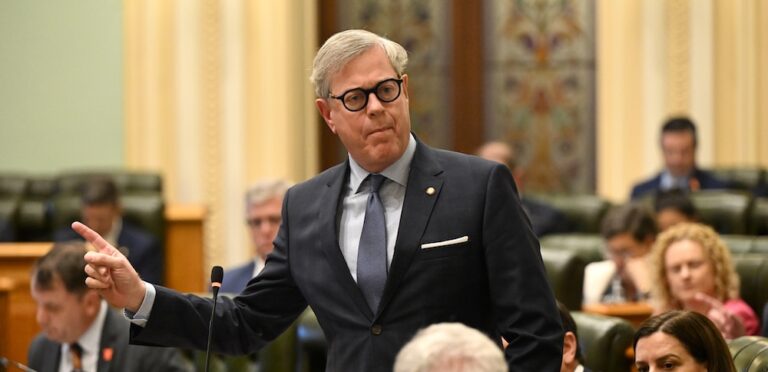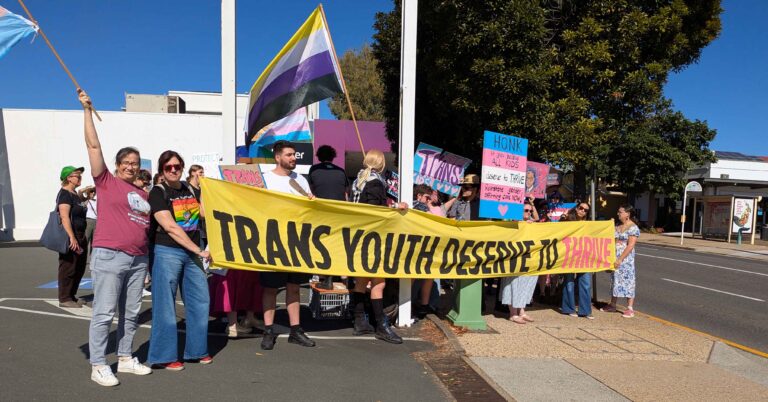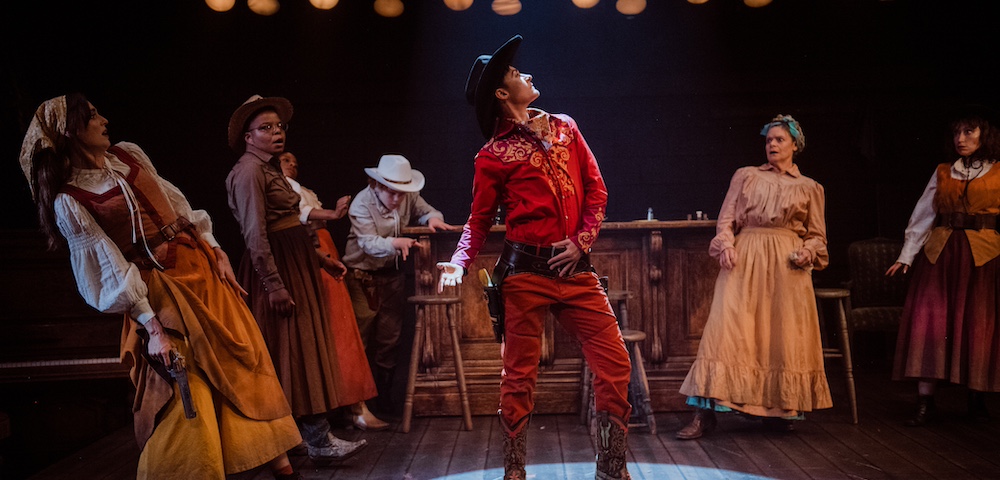
QLD Court Hears Claims Of ‘Unlawful’ Ban On Trans Youth Healthcare
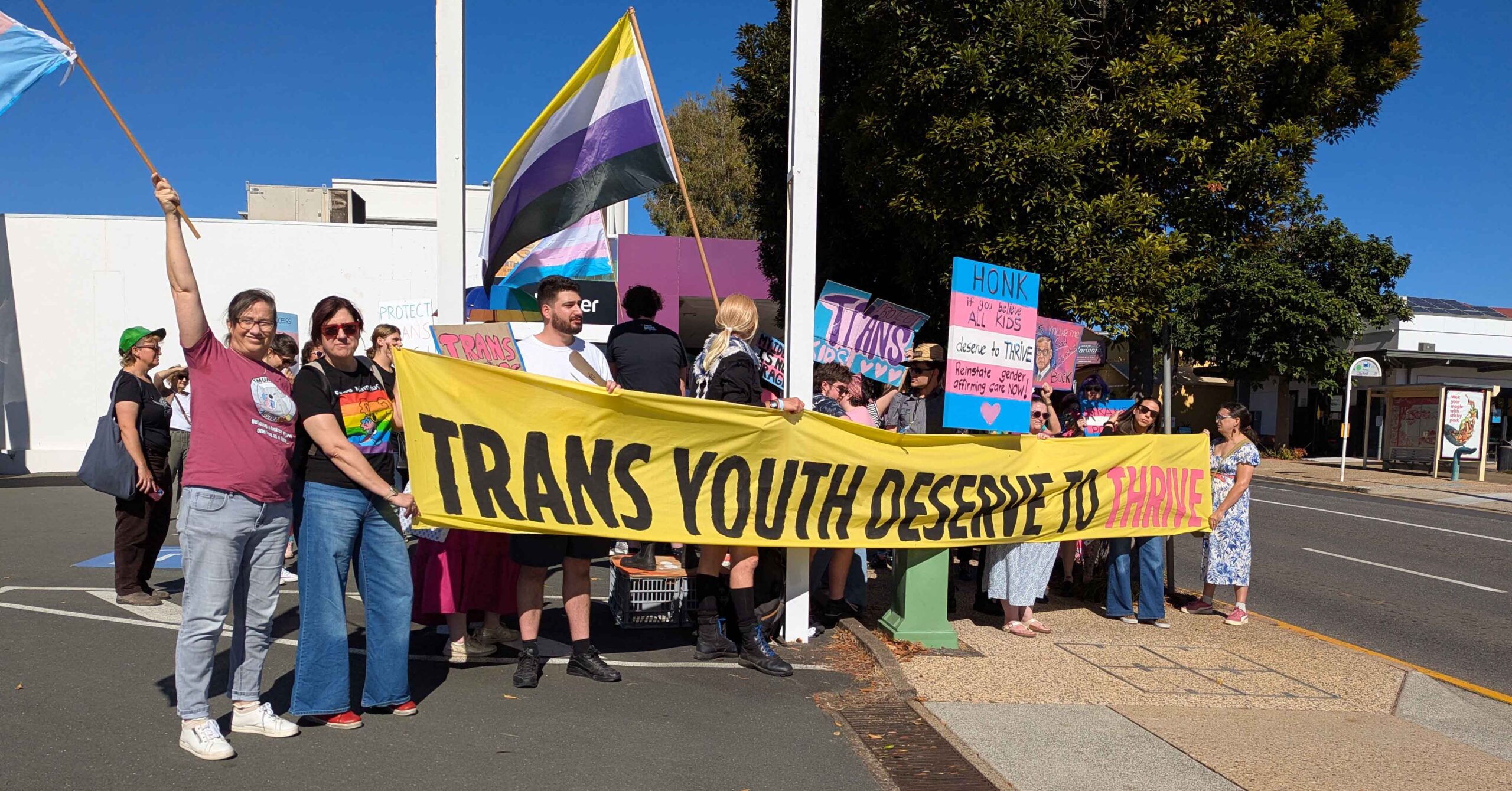
The Queensland Supreme Court has heard arguments that the state government’s temporary ban on gender affirming healthcare for trans youth may be unlawful.
It follows claims of “political interference” and a failure to properly consult health executives before the decision was made.
The arguments were heard during a case, launched by the mother of a transgender child earlier this year, that challenges the January directive issued by Queensland Health Director General Dr David Rosengren, which prohibited access to puberty blockers and hormone therapies for new patients under 18 in Queensland.
Her legal team argued that the directive was invalid because it was made under improper political direction from Health Minister Tim Nicholls and without the legally required consultation with affected health services.
Allegations of rushed, politically driven decision making for trans youth
The court heard that Dr Rosengren was required by law to consult with service executives “in developing a health service directive” before issuing the order on January 28. Lawyers said that consultation had not properly occurred, and instead, the process was rushed to coincide with the Minister’s announcement.
Mark Steele KC, representing the mother, told the court that the consultation amounted to little more than a formality, with Queensland Health executives called to a Microsoft Teams meeting that lasted just 22 minutes, the meeting was held at the same time Nicholls was announcing the ban publicly.
Steele told the court that Rosengren had already signed off on the directive before the meeting began and had “repeatedly urged staff to ensure it was published at 10.30am.”
“That can’t be genuine consultation if it’s just a fait accompli,” Steele said.
He argued that under the relevant legislation, the director-general “must act independently, impartially and fairly, and is not subject to the direction of minister,” but said Nicholls had “interfered with the process by directing Rosengren to make the decision.”
Jonathan Horton KC, acting for Queensland Health, denied the claims, saying there had been valid consultation and that the directive reflected both “political participation and executive participation.”
“It was a decision-making process in which there was both political participation and executive participation. Now that is appropriate,” Horton told the court.
He described the decision as one made “by much higher levels and with much wider considerations.”
“These decisions were being made by the head of the department and by the chief policymaking body of the state, and that colours the consultation.”
The court also heard that few within Queensland Health knew about the directive before it was issued, and that the meeting invitation to health service executives sent the day before did not mention the nature of the decision.
Children’s Health Queensland chief executive Frank Tracey, who oversees the state’s gender service, told the court he was only informed that a directive was coming the day before it was made and that he learned it was a full ban during the meeting itself.
“So that required me to immediately engage my senior clinicians, our executive director of medical service and the clinicians responsible for the gender service, and work our way through how we would respond and reorientate our service to meet the requirements of the health service directive,” he said.
Judge Peter Callaghan has now adjourned the hearing to consider his judgment.
Community rallies behind mother challenging the ban
The case has drawn widespread attention and support from the LGBTQIA+ community, with a rally held outside the Supreme and District Courts in Brisbane earlier this week.
Crowds gathered on the court lawns to stand in solidarity with the mother and her transgender child, calling for the reinstatement of gender affirming healthcare for young people in Queensland.
Organised by Magandjin People’s Pride, alongside Trans Justice and other community groups the protest drew parents, allies, and healthcare workers demanding the government reverse the directive.
“Health minister, Tim Nicholls, is playing with kids’ lives,” said spokesperson Piper Valkyrie. “When he announced this ban, he did it without any consultation, without any scientific or evidence based backing, on a claim that still hasn’t been authenticated at all.
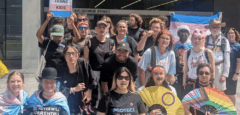
“491 kids who have been waiting for treatment for months, or even years, suddenly [lost] access to that, and for trans youth, that can be so devastating, when rates of self harm and suicide are high.”
Trans Justice Australia campaigner Jodie Hall told the rally: “It’s appalling that a mum has needed to sue the government just to get healthcare for her child. This is an important case for the entire trans community.”
“Over the last nine months the Queensland government has refused to engage with the clinicians, young people, and parents that have been impacted by this directive.
“All young people deserve a health system that supports them to grow up healthy, happy and with the freedom to be themselves.”
The government has maintained that the suspension of youth gender affirming care was triggered by an investigation into “unauthorised provision of paediatric gender services” at the Cairns Sexual Health Service, where 17 young patients reportedly received hormone therapy outside approved frameworks.
Two separate reviews remain ongoing, and the ban continues while those investigations are assessed with a decision expected in November.
However, an independent review released last year found that the Queensland Children’s Gender Service was delivering safe, evidence based care consistent with national and international standards. At the time of the ban, around 450–500 young people were on the service’s waitlist.
Solicitor Matilda Alexander, representing the mother, has previously said the government’s move “undermines the rights and responsibilities of parents, and denies children safe and effective medical care which is accessible in every other state and territory.”
The mother herself has described the ordeal as “shattering” for her family.
“This is the most intimate and private matter for my family and yet these politicians, who have never even seen or spoken to my child, are telling me how to be her mum,” she said.
“How can they possibly make such a personal decision about the private medical care of a child they have never met and whose experience of growing up is so different to their own?”
